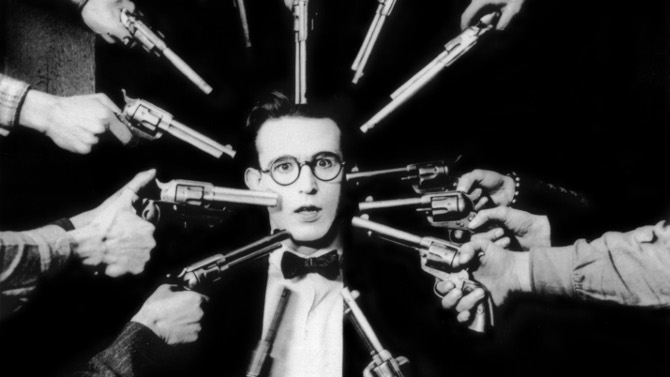
An Impossible Mission
How do you wrap up a franchise like Mission: Impossible? That is, if this even is the final installment... as they’ve made it sound (while at the same time, stars not named ‘Tom Cruise’ pipe up and suggest that might not be so). It has been twenty-nine years, with different writers and visionary directors – from twisty Brian De Palma and the action hair stylings of John Woo, to the lens flares of J.J. Abrams and animation expert Brad Bird, it was only about ten years ago that the franchise decided to opt for The Usual Suspects scribe Christopher McQuarrie for the final four. To return to that opening question once more, you could end with a Sopranos’ style cliffhanger, simply make another entertaining movie like the many before – like Everybody Loves Raymond did it with its final episode, or try to tie everything up in a neat little bow by bringing everything together as the Daniel Craig era did with James Bond. Well, it is definitely more along the lines of the latter example, with some distinct differences.
-
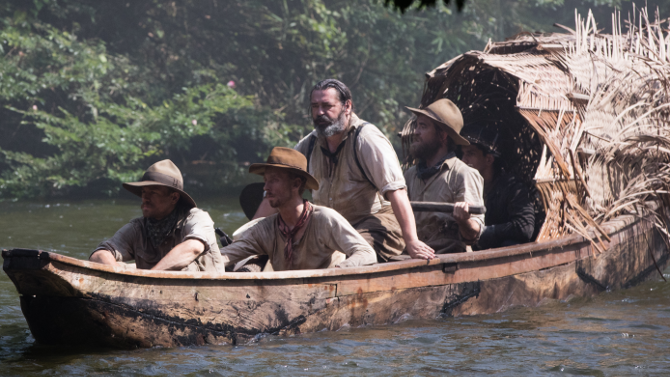
Jungle Love
The Lost City of ZJuly 18, 2017Following in the vein of other epic adventure tales of the past, like The Treasure of the Sierra Madre, Lawrence of Arabia, ‘Aguirre, the Wrath of God’ and Apocalypse Now, writer/director James Gray’s adaptation of David Grann’s The Lost City of Z is a dangerously grand journey into the mysterious jungles of the Amazon. The 2017 feature is based on real life British explorer Percy Fawcett (Charlie Hunnam) – an Indiana Jones type, who, at the start of the narrative, is a military man with low standing due to his father’s previous actions (despite the fact Percy never met him). Looked down upon by the wealthy upperclassmen of the military, he is sent to the Royal Geography Society, where they try to persuade him to survey the border lines between Bolivia and Brazil (as the ever more desirable rubber plantations are leading towards war – the two governments have accepted the British institutions offer to do the job). Though wary, the Society members hint that this could be the perfect way to restore his good name, and Percy decides to take the position.
-

You Won’t Get Sick of This
The Big SickJuly 16, 2017Beginning with a limited release, The Big Sick took hold of the 2017 highest grossing theatre average take, giving the little independent-picture-that-could positive word of mouth, and just as importantly, momentum, going into its wide release this July 14th, 2017 weekend. Labelled as a romantic comedy. . . and there are most definitely many of those elements found within it, in many ways it is the emotional dramatic flourishes that stand out, and, when fused with those laugh induced moments, make for a nuanced, exquisitely crafted dramedy.
-
Harold Lloyd Hones his “Glasses” Character
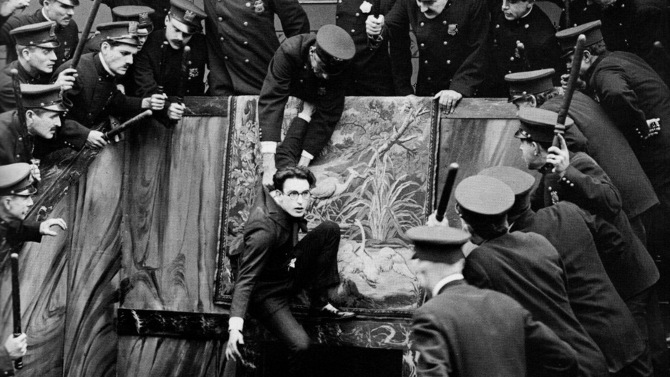 Bumping Into BroadwayAn Eastern WesternerJuly 14, 2017
Bumping Into BroadwayAn Eastern WesternerJuly 14, 2017An observation I am sure many of you have made over the years is the general stupidity (and lack of skill) the villains, police or any other nefarious enemy has had in the movies. With the James Bond films being a prime example, it shows the low standards the maniacal mastermind must have had when hiring his henchmen – they cannot shoot, drive or seemingly do anything else, stumbling over each other in the process. Also think of John Wick or any other motion picture made over the past multiple decades. Well, it was this thought that struck me as I sat watching two early silent shorts from the comedic great Harold Lloyd (placed alongside Charlie Chaplin and Buster Keaton as the top comics of the silent era). Starting with 1919's Bumping into Broadway, it was the first time the actor donned his now-famous “glasses” character, usually just referred to as The Boy. A two-reeler that lasts twenty-five minutes, it has The Boy getting into all kinds of hijinks.
-

The Sands Run Through this Mind-Bender
Run Lola RunJuly 11, 2017Filmed with a frenetic flair to match its oh-so-frenetic storyline, writer/director Tom Tykwer has us sprinting along with the protagonist in his 1998 hit Run Lola Run. A unique, creative and somewhat out-there premise, this German motion picture is, in a way, reminiscent of Krzysztof Kieœlowski’s Polish film Blind Chance, which was reviewed on Filmizon.com back in June of 2016. Our mind is, simply put, amazing. We make decisions in a split second, and that moment can change our life just as quickly. Dealing with this idea, Tykwer introduces us to Lola (Franka Potente), whose just received a distressing call from her boyfriend Manni (Moritz Bleibtreu). A low-level criminal that is being tested by his boss, Lola was supposed to pick him up after his shady dealings. But, bad luck rears its ugly head (as her Moped is stolen) and Manni is forced to find his own way home. Sneaking onto the subway, he accidentally leaves the one hundred thousand German Deutsche Marks he is transporting on the train, after being nabbed for not purchasing a ticket. Witnessing a homeless man (Joachim Król) picking it up, he knows all is lost. Meeting his boss in only twenty minutes, he is desperate enough to threaten to rob a store just outside of the phone booth he is making the call from.
-
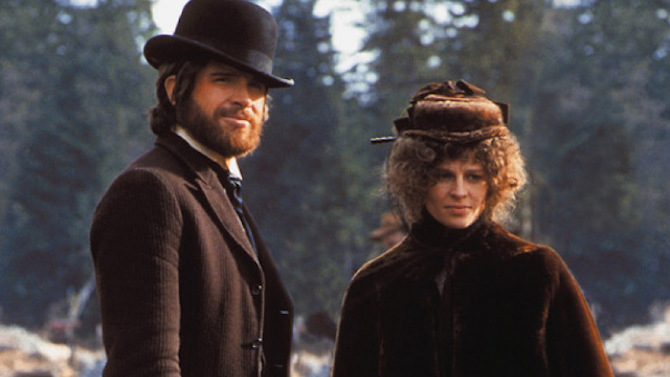
A Unique Take on the Traditional Western
McCabe & Mrs. MillerJuly 9, 2017We often think of the western as being set in the sunbaked, sand-filled deserts of the John Wayne and Clint Eastwood epics. Turning this idea on its head, Robert Altman takes us into the frontier lands of the wet and snowy northwest (filmed in and around Vancouver, Canada), an equally picturesque yet no less hostile terrain, in the 1971 film McCabe & Mrs. Miller. Riding into town with his bushy beard and no less hairy fur coat, John McCabe (Warren Beatty) is a businessman looking for his next big opportunity. He sees the tiny, half-built town of Presbyterian Church (just over one hundred people) not as a hindrance, but as the perfect location to set up a one stop saloon, gambling den and whorehouse. Hiring some local men, they get to work while he heads off to procure the working girls – purchasing some lower class ladies for the gruff, rough, and equally low class frontier men of the area.
-
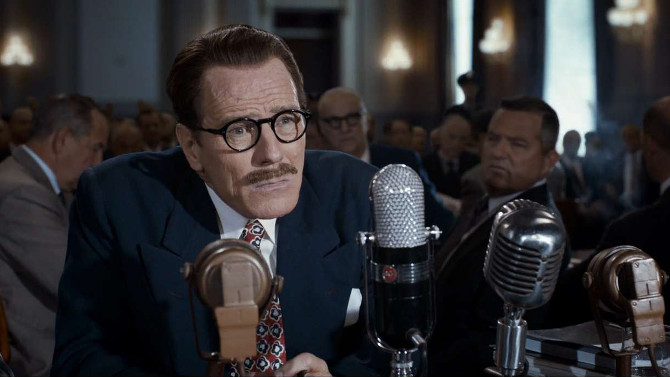
A Flourish of Trumpets for Trumbo
TrumboJuly 7, 2017Though today, The Hollywood Ten sounds like a modern take on a superhero movie, for those who know the film history, it has a much darker meaning. Referencing the ten filmmakers who were subpoenaed for being possible Communist dissidents, thought to be subverting the hearts and minds of the American people, they refused to answer questions directly. Focussing on one of the ten, 2015's Trumbo follows the famed screenwriter through the trials and tribulations of this tumultuous time in American history. Directed by Jay Roach (Austin Powers trilogy; Meet the Parents/Meet the Fockers), Dalton Trumbo (Bryan Cranston) is a highly intelligent yet cantankerous writer, one of the best in the film industry, circa 1947. An ardent Communist who believes in better working rights and pay for those in Hollywood (as well as many other things), he is married to Cleo (Diane Lane), who, despite her soft spoken nature, is in many ways the strong backbone of the family. They have three children.

